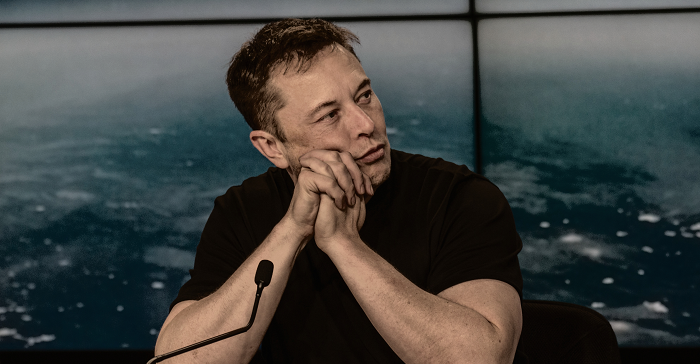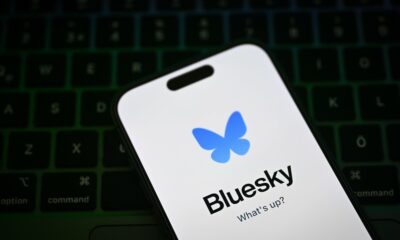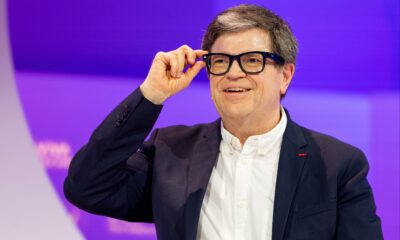SOCIAL
Musk’s Twitter Plans Remain Vague After First Q and A with Company Staff

Okay, look, I have no doubt that Elon Musk is a genius on some level, a visionary who has been able to tap into key investment and development opportunities, and make things happen where others could not.
I’m not debating this – but his views on social media, and how social platforms work, increasingly seem outdated, misguided, and outright wrong in many respects.
Today, Musk held his first meeting with Twitter staff since launching a hostile takeover offer for the platform back in April.
And as you can imagine, staff had many questions – and Musk’s answers didn’t exactly provide much assurance of future direction for the company.
First off, on censorship, which has been a key element of Musk’s Twitter takeover push. Musk has long criticized Twitter’s restrictions on certain speech, and has advocated for more open communication, within the boundaries of local laws, as opposed to taking on more officiating on such at a platform level.
In today’s meeting, Musk reiterated this stance, saying that people should be allowed to ‘say pretty outrageous things’ – though Musk also says that such comments ‘shouldn’t be amplified’ by Twitter itself.
What exactly that means is unclear – though interestingly, Musk has often criticized Twitter’s alleged ‘shadow bans’ which restrict the reach of some tweets. It seems like he’s kind of now advocating for this – but how exactly he would envision such process, in a functional sense, is unclear.
Musk also discussed his plan to combat bots, which has been another key pillar of his Twitter takeover push.
If our twitter bid succeeds, we will defeat the spam bots or die trying!
— Elon Musk (@elonmusk) April 21, 2022
Last month, Musk said that his Twitter takeover had been effectively put ‘on hold’ due to him essentially not believing Twitter’s data that only 5% of its active users were fake/bots. Twitter has since provided Musk with its ‘full firehose’ of tweets to make an independent assessment.
So how does Musk plan to tackle bots?
His solution would be that users need to pay a certain amount to get their account verified, which would make it too expensive to run massive bot networks.
“It needs to be much more expensive to have a troll army.”
That makes some sense, but it could also be more challenging in practice, while additionally limiting the app’s growth prospects, if every user has to pay to sign-up. Musk has previously also noted that Twitter ‘will always be free for casual users’, but how these two stances would align is another hazy element.
Which leads into Musk’s growth plans for the app. As per Musk’s leaked strategy deck, which had been shared with potential investors Musk plans to increase Twitter’s user base from the 229 million daily actives it has right now, to 600 million by 2025, then to 931 million by 2028.
In fact, Musk has told Twitter staff that his plans are even bigger than this, with a target of a billion users in the app.
Though again, the detail is pretty light on here, with Musk only providing a vague reference to Chinese messaging apps as a template of sorts for Twitter growth.
Elon says that if the company wants more people to use Twitter, they should mimic the approach of the super app WeChat in China. “you basically live on WeChat in China….if we can recreate that with Twitter we’ll be a great success”
— Alex Heath (@alexeheath) June 16, 2022
Wow, what a stroke of genius this is. This approach totally hasn’t been attempted by almost every other messaging app, in every other region.
Indeed, Meta has been working on this template for years, first trying to get Western users more hooked on Messenger, via the addition of a range of expanded functions and tools, then pushing to do the same with WhatsApp in India and other Asian markets.
It’s never worked. For whatever reason, Chinese users have adopted messaging apps in a much bigger way than those in other markets, and while Meta is still hopeful that it can make WhatsApp the key connective tool on India and Indonesia specifically, the chances of US users increasing their reliance on a messaging platform – and definitely on Twitter – are not very high.
But Elon seems to believe that he’s the first to notice this, and that this is some hidden gem that no one has stumbled upon as yet, which again underlines the concern that he’s a little naïve in his approach to managing, and maximizing, the platform.
That’s been the same in his statements about fake accounts and free speech, Elon has a personal stance on each of these elements, but it’s not like the questions that he’s raising haven’t been raised and assessed by every other social app at some stage.
For example:
Chronological tweets seem much better than what “the algorithm” suggests
— Elon Musk (@elonmusk) May 12, 2022
It still amazes me that a person looking to buy a social media platform doesn’t understand the impact that algorithmic sorting has on engagement, a key measure of success. Yes, some people get annoyed by an algorithm showing them what it thinks they like, but the fact is that all platforms that have implemented algorithmic systems have seen engagement increase as a result, including Twitter itself.
Which leads into the next point raised by Musk:
Elon gets a question on content moderationn issues and what should/shouldnt be allowed.
He is more worried about whether or not people are seeing “boring content,” and that TikTok does a great job of keeping people entertained.
— rat king (@MikeIsaac) June 16, 2022
Right, so algorithms are bad, but people can’t be shown ‘boring content’ – and TikTok, which has seen massive success on the back of its highly attuned personalization algorithm, which fuels its ‘For You’ feed, is a great example of what to aim for.
I look forward to seeing how Musk and Co. solve for this.
Other staff questions related to diversity in the workforce, allowing people to continue working from home (something Musk is against) and, of course, potential lay-offs.
Musk has previously stated that he plans to cut Twitter’s staff base by around 1,000 roles – a seventh of Twitter’s overall workforce – over the next two years.
Musk didn’t offer any additional assurance on this front:
“Right now costs exceed revenue. That’s not a great situation.”
Musk also – probably jokingly – suggested that Twitter could add an ‘irony’ label to add context to tweets.
Which is pretty stupid – but again, it seemed like a joke. Probably.
Again, overall, Musk’s responses show a lack of awareness in many respects, and a lack of a clear plan as to how Musk expects to make Twitter a success, outside of just getting people to tweet more often.
Functionally, that’s not something you can just do, and getting more people to tweet has been the full focus of the app’s staff for the entire 16 years of its existence.
Still, Musk seems confident that he has the answers. Like $44 billion confident.
How that translates into action, we’ll have to wait and see.



















You must be logged in to post a comment Login